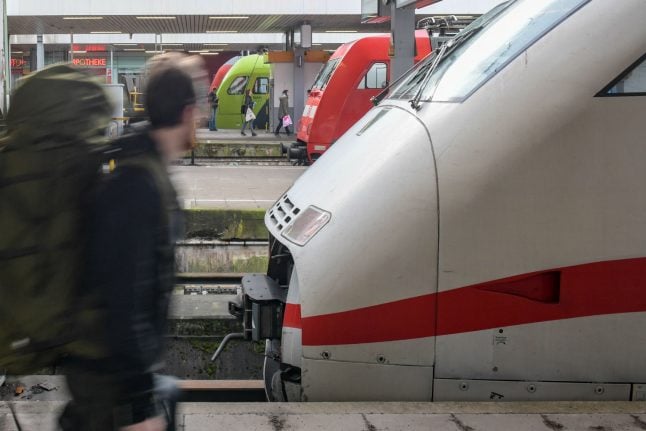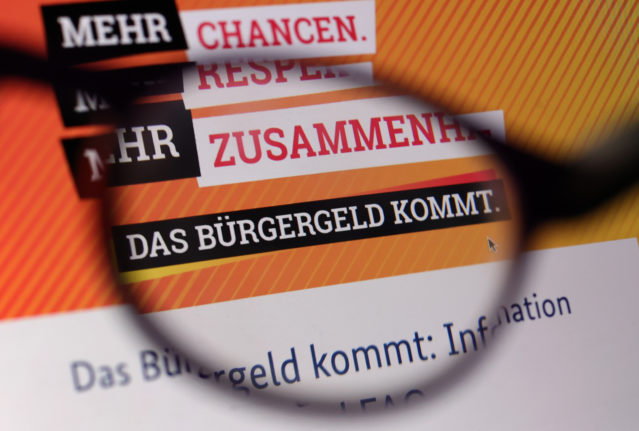The budding companies enable customers to apply for reimbursement of their fare from Deutsche Bahn via an app if their train was delayed.
When going the official route, this has so far only been possible using an analogous form.
READ ALSO: Why so many trains in Germany are late
The paper procedure is considered cumbersome, even though the state-owned Deutsche Bahn group says that they are working on changing this.
How much is refunded?
In general, customers can get 25 percent of their fare back from Deutsche Bahn if they arrive at their destination at least one hour late. For a delay of two hours, half of the fare is refunded.
To claim a refund, passengers must enter their connection data on to the form and hand it in at one of Deutsche Bahn's service counters, or send it to the company by post.
“But many customers don’t care to do this, or to deal with the questions from Deutsche Bahn when they come back by mail,” says Stefan Nitz, founder of the start-up refundrebel, which takes on the work for customers.
READ ALSO: What you need to know about Germany's new 2020 train timetable
All customers have to do is to send data about their delay by mobile phone, and the company takes care of everything else.
“We also handle the more complicated cases,” says Nitz, such as taxi rides or hotel stays in cases where passengers are stranded at train stations at night because of a delay.
In exchange for providing this service, refundrebel retains 16.5 percent of the refunded fare. Compared to other providers, though, this is a little expensive. There are currently about half a dozen start-ups on the small market.

DB passengers waiting in line at an information counter in Hamburg after their trains were delayed by a storm in September. Photo: DPA
At RE.X, for example, the passenger rights form can also be filled out digitally.
“With our app, you can fill out the application while you're still on the train and we'll hand it in for you,” the start-up advertises on its website.
The service at RE.X costs an initial flat rate of €1.09. After an introductory phase, however, the regular price is set at €1.99.
On the Zug-Erstattung.de website, however, the first application of the year is free of charge. Each additional application costs 99 cents.
The Pro Bahn passenger association is not entirely convinced by the new offers. “It is a ‘nice to have’,” said the honorary chairman of Pro Bahn, Karl-Peter Naumann.
“But it's not the biggest relief either.”
The start-ups would also need a lot of information from the customers to apply for reimbursement, said Naumann.
A long ride to digital processing
Deutsche Bahn itself told DPA that it makes no difference whether the refund application is submitted directly by the passengers or by third parties.
Because the company is currently completely overhauling its digital booking system, it will take until 2021 before refunds can be processed digitally.
READ ALSO: Deutsche Bahn to introduce its own 'Siri' to better assist customers
The founder of refundrebel, Nitz, said that this doesn't pose a threat to his business, though.
“We don't believe that the Bahn will then take us off the hook,” he says. “There are also some things that are difficult to implement digitally. We're still a good alternative.”
Ten employees took care of the applications. His own business is not yet profitable. “We're still in the growth phase,” he said.
Via the platform, reimbursements can also be applied for from other railway companies and from Flixtrain – although some of them offer digital options for refunds themselves.
Vocabulary
refund – (die) Erstattung
relief – (die) Erleichterung
request – beantragen
revise/overhaul – überarbeiten
We're aiming to help our readers improve their German by translating vocabulary from some of our news stories. Did you find this article useful? Let us know.




 Please whitelist us to continue reading.
Please whitelist us to continue reading.
Member comments